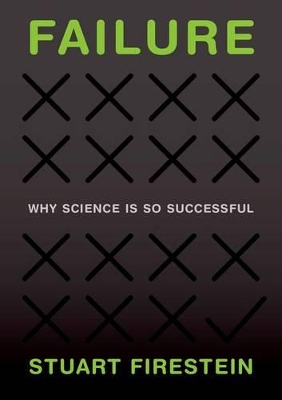Reviewed by Rach Wood on
The language is conversational, the reasoning should not be understood sequentially because you can read the chapters separately, and the unique way Firestein highlights his beliefs about science and what moves it, stands out, making his speech ultimately successful.
The Firestein thesis is built on how failure is a constant, not only on doing science but on financing, disseminating and teaching it. But it becomes even juicier when he explores his experiences and those of his colleagues. But mostly the failure (or failures) of some famous scientists, such as Newton, Edison, Einstein or Darwin, to prove science is rarely 100% right or wrong and how failure can lead to better results.
I have to stress the importance of discussing science education and the idea, mentioned for the first time in the chapter Fail Better: Advice from Samuel Beckett, that learning science should not be a memorization marathon.
In the chapter Teaching Failure, Stuart Firestein reinforces his criticism of what he calls the bulimic system of education. A teaching method that encourages students to decorate and dump the material in exams, keeping no useful knowledge for their future as citizens and professionals.
It's also important to highlight the chapter Negative Results: How To Love Your Data When It's Wrong. It addresses the mistaken belief that the publication of a scientific article represents the end of the research, with the results being perceived as absolutely correct when the truth is science is always under constant review.
Stuart Firestein argues that the publication of results is only a contribution not only to research but also to the scientific discussion. That's why the results are always presented, even if the initial theory is refuted.
It's also important to know why research replications can raise suspicions of fraud if the data are not correct or if it's not possible to replicate them. But mostly how sometimes the replication was unsuccessful just because a scientist didn't consider it necessary to report a particular step, let alone understand it as crucial to the success of his research.
A failure can be a product of different circumstances and can become a success in another era, with new technologies, techniques and perspectives, until then not available.
In short, Firestein encourages the scientific community to reflect on the effectiveness of the scientific method, the importance of failing, assuming mistakes and achieving success through corrections, that is through failing better.
Reading updates
- Started reading
- Finished reading
- 6 January, 2022: Reviewed
